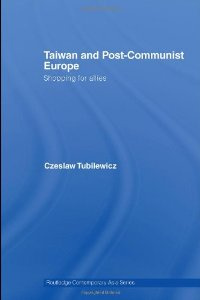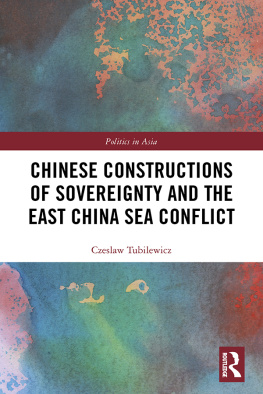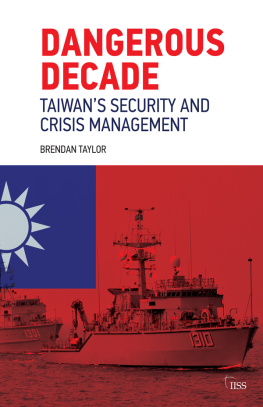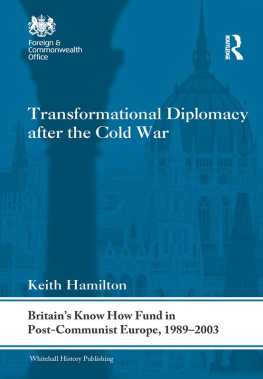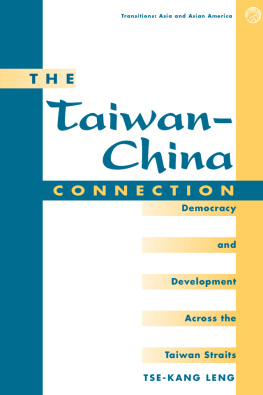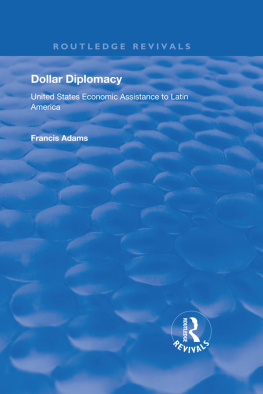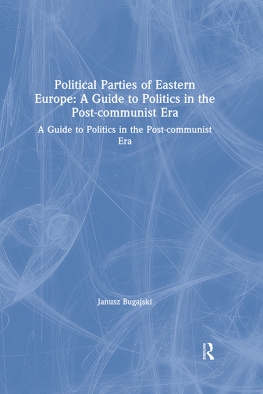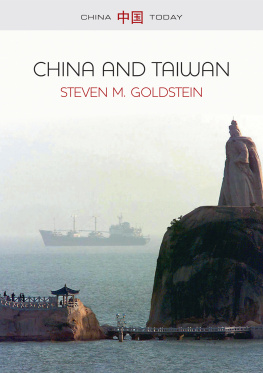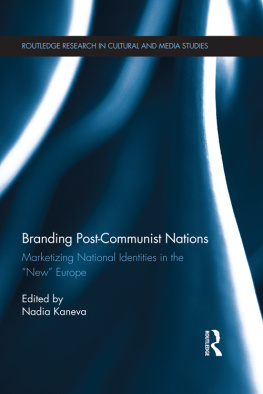Contents
List of illustrations |
Acknowledgements |
List of abbreviations |
Glossary of Chinese names |
| Taiwans economic diplomacy |
| Closing the Cold War chapter |
| Central European focus |
| The Latvian model |
| The Russian offensive |
| Chinas Balkan fortress |
| Macedonian breakthrough |
| Fair-weather friends |
| Taiwans economical diplomacy |
Notes |
Bibliography |
Index |
4 The Latvian model
The three Baltic states, namely Estonia, Latvia and Lithuania, seem to be rather odd extras in the long-standing conflict between the two Chinas. Their small economies make them unimportant economic partners, while their geographical location - strategically important to Russia and Scandinavia - is of little relevance to both governments on the opposite sides of the Taiwan Strait. Historically, the Baltic states had limited contacts with China, whether that was the pre-1949 Republican China or post-1949 communist China. During the Baltic states short-lived period of independence (1918-1940), neither the Balts nor Chinese rushed to establish official relations. Latvians were the first to conclude a Treaty of Friendship with China in June 1936 and Estonians followed in December 1937. The Soviet invasion of the Baltic states in 1940 terminated nascent Sino-Baltic relations. The Republican Chinese government, however, did not recognize the forced incorporation of the Baltic states into the Soviet Union
- despite its renewed friendship with Moscow - and did not renounce the treaties signed with Latvia and Estonia.1
For 50 years, the Baltic region disappeared from the Chinese foreign policymakers mental map of the world. At the same time, the post-1949 diplomatic -and, occasionally, military - confrontation between the PRC and the ROC did not concern the Baltic peoples. When the Baltic nations began their struggle for independence in the late 1980s, their eyes were turned to Europe and the United States. Having won sovereignty in 1991, their foreign policy concerns centred primarily on relations with Russia and the West. China and Taiwan were of little
- if any - consequence in their desire to join the Council of Europe, the EU or North Atlantic Treaty Organization (NATO). Yet, as early as 1990, the Baltic region featured prominently in PRC-ROC diplomatic rivalry.
The Baltic option?
When the first Taiwanese trade delegation toured the USSR in October 1988, it chose to visit Moscow, Leningrad, Kiev and Minsk, ignoring the Baltic region and its economic potential. Only the news of pro-independence demands in the Baltic republics drew Taipeis attention, revealing the possibility of winning far more than just access to the Soviet market - new diplomatic allies. The three
Baltic would-be allies were neither wealthy nor influential in world affairs, but these shortcomings, in fact, made them excellent candidates for diplomatic partnership. The post-communist economies, in need of investments and financial assistance, were likely to be more receptive to promises of grants, soft loans, investments and expanded bilateral trade than stronger, more-established economies. The Baltics fiercely anti-Soviet and, by extension, anti-communist stand made them more inclined to sympathize with democratic Taiwans struggle against encroachment from communist Beijing. The PRC leaderships lack of support for the Baltic demands for sovereignty gave a boost to the ROCs hopes of forming diplomatic partnerships with countries in the region. Finally, the embryonic diplomatic corps in the newly independent states may have been less cognisant of the wider consequences of adopting pro-Taiwan policies and, therefore, more willing to depart from the one China principle.
Taipei may have appeared ill-prepared to wage a successful diplomatic campaign in the distant and unfamiliar Baltic lands, but its record of activities in Central Europe indicated its ability to forge the necessary local alliances with post-communist leaderships, despite its unfamiliarity with the languages, cultures and political complexities of any of the post-communist nations. Such alliances, however, did not produce diplomatic ties with Taiwan, as Chinas traditional friendship with Central Europe survived the systemic transformations, while Taipei opted against following through with its promises of economic assistance. In the Baltic region, China lacked a network of trusted friends, who would rally to its support whenever the issues of Taiwan or Tibet surfaced in domestic politics. The Baltic economies were also more than five-times smaller than those of Central Europe and, thus, more likely to feel the impact of Taiwanese limited generosity. In sum, the Baltic states were a testing ground, where Taipei and Beijing could compete with each other on - as it seemed at the time -more-or-less equal footing.
Once the Baltic republics asserted their independence in early 1990, MOFA set to work on the assumption that it was only a matter of time before Estonia, Latvia and Lithuania would gain sovereignty. It was, however, mindful of not upsetting emerging relations with Moscow. Thus, when Lithuanian leader Vytau-tas Landsbergis urged Taiwan - in the wake of the ROC Executive Yuans directive allowing direct trade relations with the Soviet Union - to trade with his republic independently of the ROCs trade with the Soviet Union, MOFA rejected the request.2 Taiwans low-key communication with the Baltic leaderships (of which little is known) continued however. Its incentives were strong enough not only to open the doors of high-ranking officials, but also to entice them to visit the ROC.3
The first Baltic officials to visit the island came from Latvia in early March 1991. Maris Gailis, General Director of the Department of Foreign Economic Links (ironically, the same person who three years later would terminate Latvias consular ties with Taiwan), and Ojars Kehris, the Chairman of the Economic Commission of the Supreme Council, allegedly proposed reciprocal establishment of trade offices in both capitals, as well as requested Taiwanese financial assistance to strengthen Latvias budget, establish a World Trade Centre in Riga, and support its educational system and SMEs. ROC Vice Foreign Minister John Chang welcomed the proposal to exchange trade offices, though he remained uncommitted on the details.4 Most importantly, he spelled out Taipeis readiness to make substantial capital investments in Latvia, while dismissing criticism that promoting economic ties might affect Taiwanese efforts in the Soviet Union.5 Official communication channels were also established with Estonia (and, possibly, Lithuania). The Deputy Secretary General of CETRA visited Tallinn in mid-July 1991, where he held talks with Prime Minister Edgar Savisaar. At the same time, Estonian Minister of Foreign Economic Relations Dr Mehis Pilv promised CETRA to visit Taiwan within three months.6 The Taiwanese officials access to the high-ranking politicians in the Baltic republics indicated that -limited knowledge of the region and its peculiarities notwithstanding - Taipei had successfully established the necessary network of friends, who facilitated its activities in the region. Little - if anything - is known of these Taiwan-friendly individuals. It is highly unlikely, however, that these unnamed but well-placed officials suddenly, and without any financial incentives, fell in love with Taiwan.7
The Baltic states achieved independence sooner than expected. In the aftermath of the abortive coup of August 1991, the USSRs State Council formally approved their sovereignty. On 27 August 1991, a few days after their proclamation of independence, the Taiwanese approached the embassies of the Baltic states in Washington, expressing Taipeis readiness to recognize their sovereignty. At the same time, Taipei sent letters and envoys to the Baltic leaderships to probe their intentions regarding diplomatic ties with China.8 Only Latvia responded in writing by suggesting the establishment of reciprocal offices and inviting Chang Hsiao-yen to Riga.9 In early September 1991, ROC Foreign Minister Chien Fu officially indicated Taiwans readiness to establish diplomatic relations with Estonia, Latvia and Lithuania and list them as targets for direct trade and preferential tariff treatment.10 Technically, the two friendship treaties between the ROC and Latvia and Estonia that had been signed before the Second World War were still in force, as none of the signatories had renounced them. MOFA toyed with an idea of simply renewing these treaties and inviting Lithuania to resume treaty negotiations.11 The Legislative Yuans main parties, the KMT and DPP, however, urged the government to confer formal and immediate recognition on the Baltic states. Seemingly, only fear of the embarrassment of possibly being spurned in favour of Beijing stopped Taipei from actually doing so.12 The PRC, as a permanent member of the UN Security Council with the right to veto Baltic states membership, enjoyed a natural advantage over Taiwan. Thus, the terms of Sino-Taiwanese competition for allies in the Baltic region proved less equal than envisaged.
Next page
